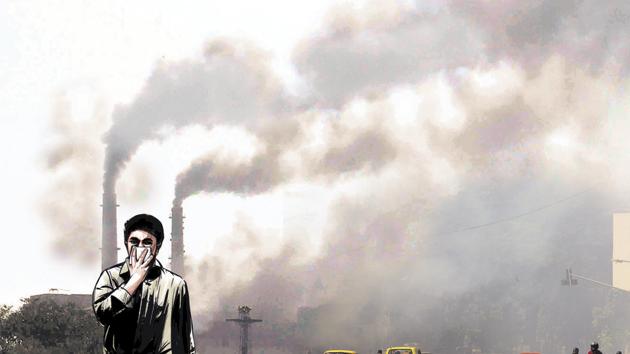IIT-Bombay professor wins award for trapping carbon to reduce pollution
The research assumes significance since India is the fourth largest emitter of carbon dioxide, which affects both environment and health. Carbon dioxide, when released into the atmosphere, is known to remain for around 100 years.
A professor from the Indian Institute of Technology-Bombay (IIT-B) has won the Indian National Science Academy (INSA) medal for Young Scientist 2017 after he discovered a new scientific method to capture carbon dioxide from industrial units and inject it underground to help prevent air pollution.

“Natural gases have remained trapped in deep underground rock structures for several million years. This provided the idea to inject and store the greenhouse gases in rocks and prevent their release into the atmosphere,” said Vikram Vishal, assistant professor, department of earth sciences, IITB.
The research assumes significance since India is the fourth largest emitter of carbon dioxide, which affects both environment and health. Carbon dioxide, when released into the atmosphere, is known to remain for around 100 years.
Studies have estimated that the total annual carbon emissions in India will increase by about 2.5 times — from 1,229 metric tonnes in 2005 to approximately 3,084 metric tonnes in 2030.
“Last year, I created underground conditions in my own laboratory and used carbon dioxide for the first time. We evaluated the geo-mechanical conditions of the coal reservoir. Real time conditions in the laboratory have added to my research,” said Vishal, adding that he was now addressing more scientific questions.
In addition to capturing and storing carbon dioxide in the coal beds, the research paper also deals with the recovery of methane from the same beds. “When carbon dioxide is injected at very high pressure into coal beds, methane is released. This can be collected to address the country’s energy demands,” said Vishal.
He added, “At present, around 40% of methane is recovered normally. With this study, we have estimated that 70% to 75% of methane can be recovered since the carbon dioxide that is pumped into the deep coal bed will occupy the pores left empty by methane.
Vishal had also won the Young Scientist Award at the Indian Science Congress in 2011.
“Realising India’s vast geological diversity, the country offers ample opportunities for the storage of carbon dioxide. Injection of carbon dioxide will not only help develop a long sustainable earth, but also lead to enhanced recovery of methane to partly meet our growing energy demands,” said Vishal.
How it will be done
Carbon dioxide from capture units in coal plants or industrial units will be tapped.
The gas will then be transformed into liquid state.
This carbon dioxide in liquid state will be injected under high pressure into rock deep underground coal beds.
This will in turn pump the methane out of the coal beds, which can then be collected and used as fuel.
The pores left empty by methane will be occupied by the injected carbon dioxide, thereby preventing it from polluting the atmosphere.




